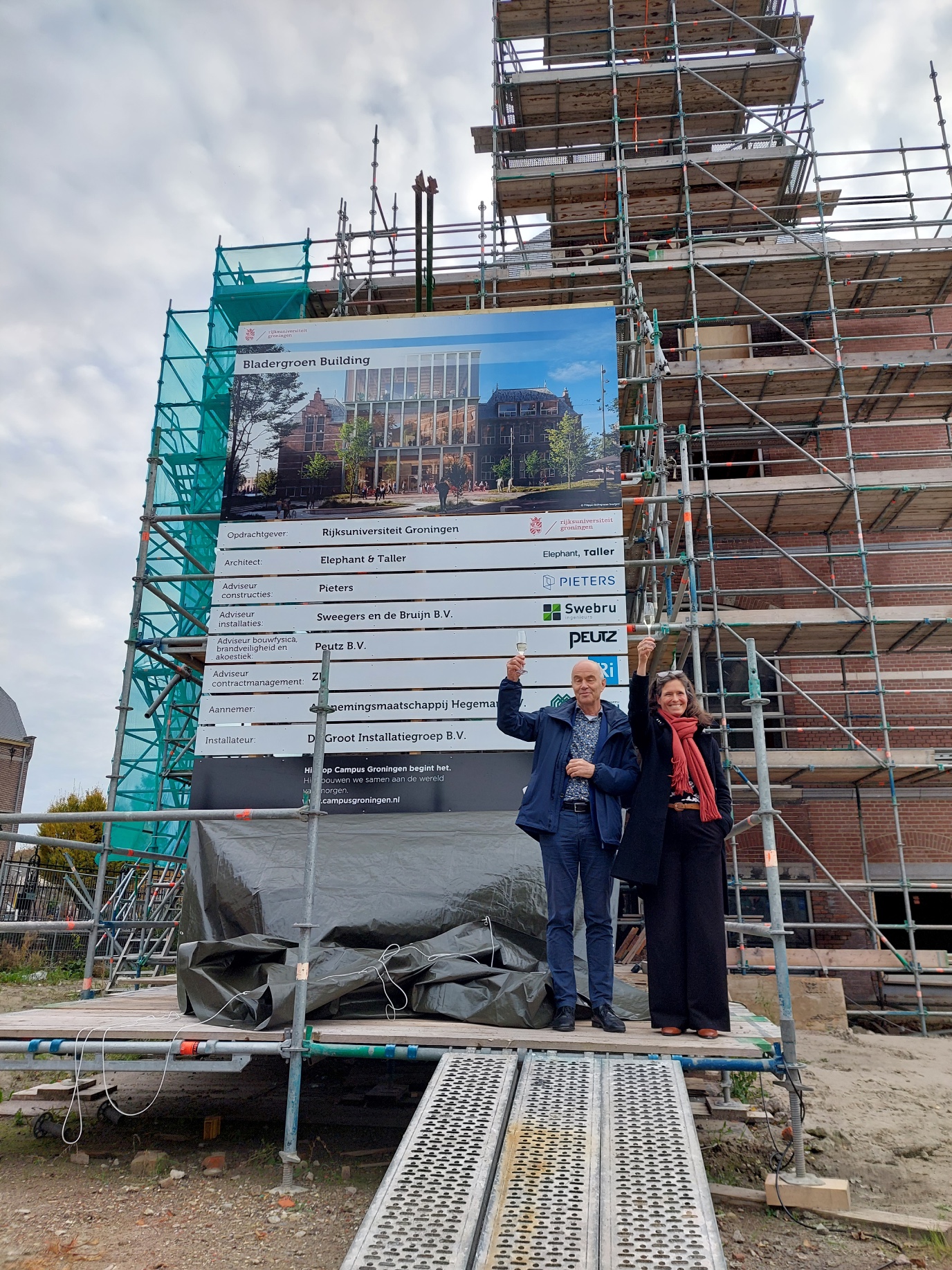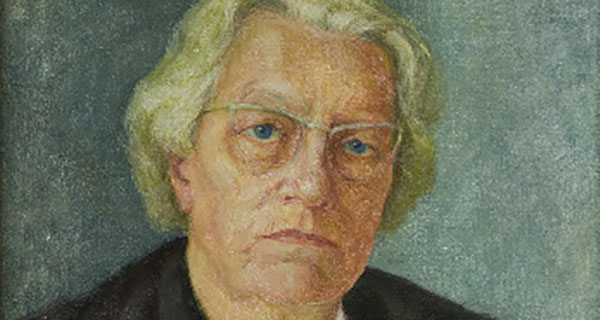New Chapter: Construction Begins on Our New Bladergroen Building

Yesterday, we celebrated an exciting milestone — the start of construction on our new building. During the event, we proudly unveiled its name: Bladergroen Building.
With this name, we honor Wilhelmina “Mien” Bladergroen (1908-1983), a remarkable woman who devoted her life to education, to children, and to social change. She was a person with vision, courage, and compassion — and her ideals echo in what we stand for at University College Groningen.
Who was Mien Bladergoren?
Bladergroen was born in 1908 and grew up in Amsterdam. From an early age, she was fascinated by movement — not just physical movement, but the movement of minds and lives.
She studied physical education, financing her studies by tutoring others, determined to build her own path and helping others. After her studies, she worked as a gymnastics teacher in the working-class neighborhoods of Amsterdam, where she was confronted daily with poverty and inequality. Those experiences shaped her lifelong mission: to protect children, give them opportunities, and help them grow — freely and fully.
Driven by that mission, she went on to study psychology at the University of Amsterdam. During the Second World War, Bladergoen established herself as an independent child psychology and pedagogy consultant in Amsterdam and founded, entirely on her own, a small school for children with learning and developmental challenges and a boarding school, which was completed with a research practice. In doing so, she laid the groundwork for what would later become known as “remedial teaching.” She refused financial support from the occupying authorities and was even arrested for sheltering Jewish children in her school.

After the war, her work gained recognition, and in 1949 she was appointed the first lector in child psychology at the University of Groningen — despite not holding a doctorate. Thanks to her expertise in developing innovative teaching and therapeutic methods for children with learning and developmental difficulties, Bladergroen was later appointed associate professor of orthopedagogy at the University of Groningen.
Here in Groningen, she brought research, education, and practice together in new and exciting ways. She founded several institutions and schools, including a special education school in Eelde and an institute for remedial teaching. She also opened a private practice and became a well-known public voice — giving lectures, writing for a broader audience, and appearing in the media to advocate for better learning and play environments for children. In many ways, she put Groningen on the map as a center for child education and psychology.
At the University of Groningen, Bladergroen was known as an extraordinary teacher. Her lectures were lively, often performative, and always deeply human. She believed that students should not, as she said, “practice dry swimming in theory” — but should go out into the real world to learn, to feel, and to reflect. She brought learning to life — and life into learning.
Above all, Bladergroen was a tireless advocate for children’s rights and wellbeing. She fought for every child’s right to play, to develop freely, and to be respected as a whole person. In 1958, she became a prominent member of the International Council for Children’s Play, spreading her belief that play is not a luxury, but a foundation for creativity, learning, and being human.
At University College Groningen, we see her story as part of our own.
Like Bladergroen, we believe that education should reach far beyond books and grades.
We want to educate curious, socially conscious, and entrepreneurial global citizens – students who learn by doing, who combine knowledge with compassion, and who dare to imagine and build a better world.
Bladergroen’s work was profoundly interdisciplinary, combining her expertise in physical education with insights from psychology and pedagogy to support the holistic development of every child. She demonstrated how movement and play could be integrated with therapeutic methods to prevent or address learning difficulties. This practical, hands-on approach reflects the mission of University College Groningen, where we encourage students to connect knowledge across disciplines, learn by doing, and tackle complex societal challenges with creativity, empathy, and collaboration. Just as Bladergroen used multiple fields to make a real difference in children’s lives, UCG fosters a learning environment where diverse perspectives meet, inspiring students to think critically and act meaningfully in the world.
Yesterday, we celebrated not just a name, but a promise:
that the spirit of Mien Bladergroen — her curiosity, her compassion, her courage — will continue to inspire generations of students to learn, to play, and to make a difference.
More news
-
15 September 2025
Successful visit to the UG by Rector of Institut Teknologi Bandung
